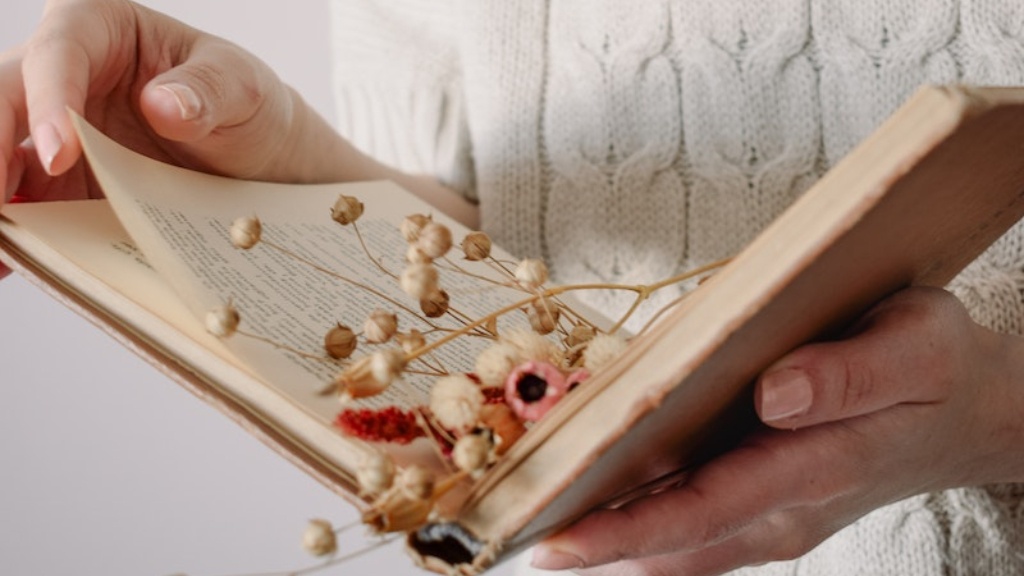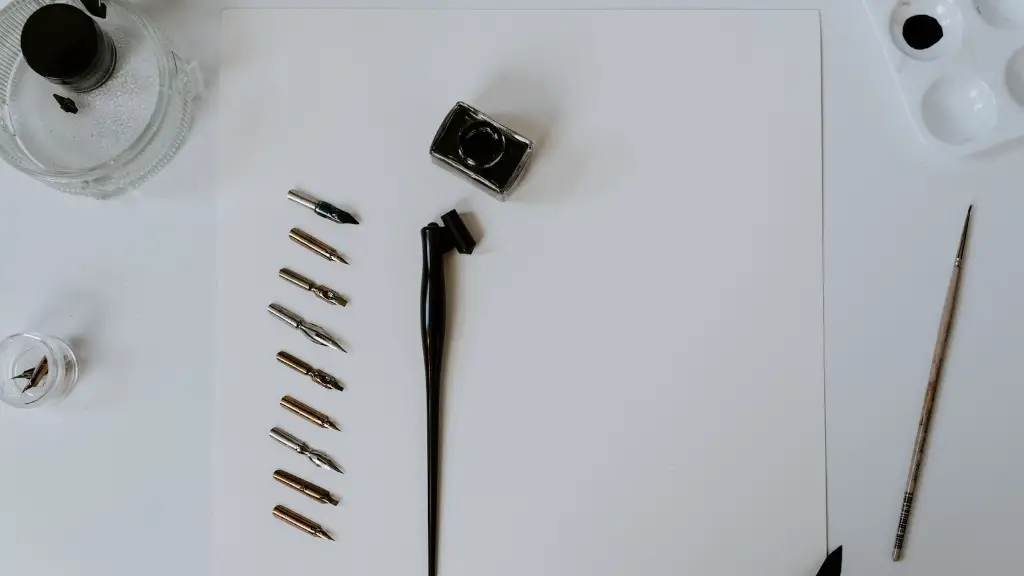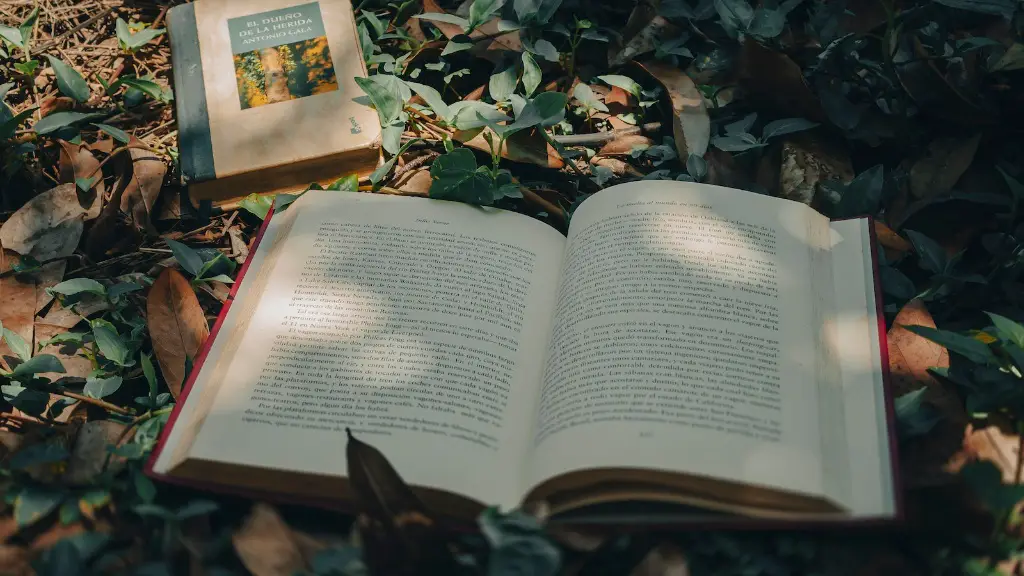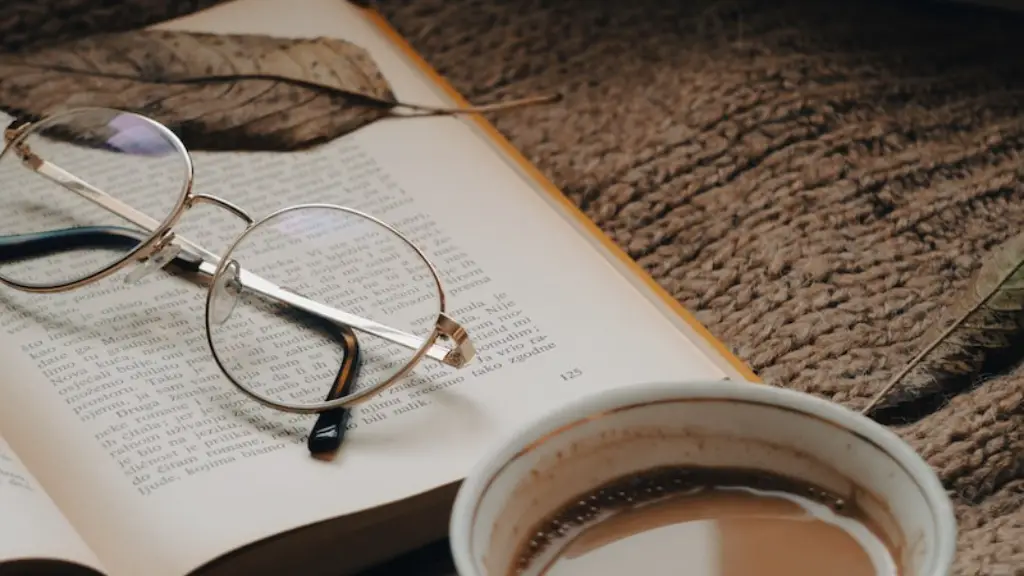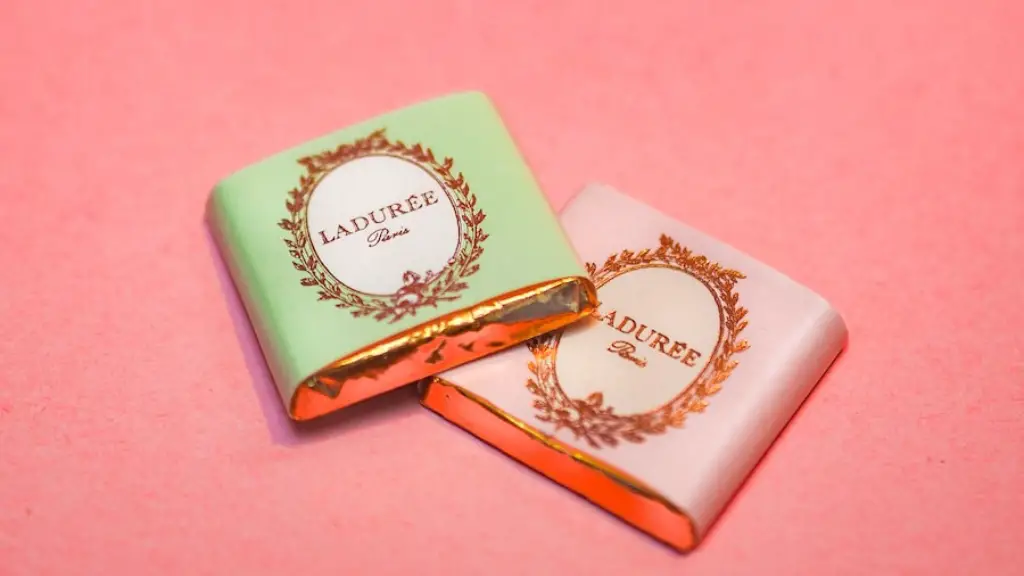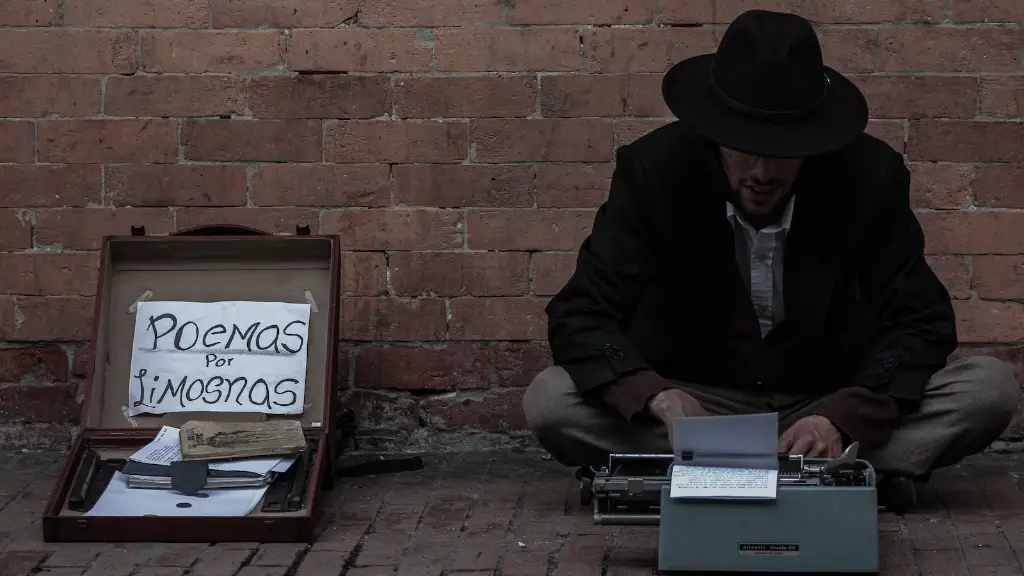Poetry and poems have an age-old relationship. Poetry is a literary art that encompasses the written techniques of many different genres, while a poem is a work of art created through poetic techniques. But what exactly is the difference between a poem and poetry?
In essence, the key distinction between the two lies in their context. Poems refer to specific pieces of work and are often stand-alone pieces of literature. Poetry, on the other hand, is far more broad in scope, encompassing the whole realm of literature which employs the various techniques used in poetic writing.
Poetry, unlike prose, is characterised by the use of rhyme, rhythm, and figurative language. The form of a poem, be it sonnet, ballad, ode etc., also contributes to its beautiful and captivating nature. Interestingly, poems can be studied as works of literary criticism, literary history, and language in order to analyse their creative elements and understand how they interact with their historical context.
In contrast, the term ‘poetry’ generally refers to the works of literature in all the different forms that employ poetic conventions. Thus, ‘poetry’ could refer to a sonnet, a ballad, an epic or any other type of poem. It also encompasses broader forms of writing that express ideas from a unique and creative viewpoint, such as creative non-fiction.
Furthermore, renowned poet, George Eliot, who wrote “Poetry gives us the blessing of a heightened and an exalted speech”, highlighted the power of poetry in bringing together people of various backgrounds, faiths and beliefs through its combination of poetic structures and patterns. Poetry can be seen as a cohesive force which promotes understanding, unity and peace among different cultures and people.
Overall, while poems are one specific form of literature, poetry encompasses the various forms of literature which employ poetic techniques. While poems can be studied on their own, the term ‘poetry’ is used to refer to a broad range of literature which uses same device of expression. Thus, it can be said that poems and poetry, while related, are jointly distinct and should not be used interchangeably.
What is Prose Poetry?
Prose poetry is one of the forms of poetry that uses the techniques of prose with the particular purpose of creating poetic meaning. This type of writing uses the conventions of prose such as punctuation, structure and white spaces, and combines them with the elements of poetry such as rhyme, rhythm, and imagery. It is also a fascinating way to explore the natural order of words and discover the hidden beauty of language. In addition, prose poetry can trace its roots as far back as biblical poetry, which is a type of form of writing commonly used in texts such as the Old Testament of the Bible.
Unlike traditional poetry, prose poetry does not rely solely on symbols, imagery and sound and rather, puts emphasis on the understanding of words and their combination. Moreover, another feature of prose poetry is its ability to create a mystical atmosphere through its form and structure. For example, authors such as Charles Baudelaire and Stéphane Mallarmé use words and phrases that evoke a mesmerising effect, which contributes to the overall mystical feel of their work.
It is also important to keep in mind that prose poetry does not differ greatly from traditional poetry in terms of purpose and content. Although writers may manipulate the traditional form to better suit their vision and create a new poetic experience, in essence the aim of all poetry remains the same – to extend the boundaries of language and express feelings, thoughts and ideas.
Poetry and Music
It’s no surprise that poetry and music have a long-standing relationship with each other. Music is an art form that uses auditory aspects to emotionally connect with an audience, and similarly poetry relies on literary devices to tell a meaningful story and express emotions. Just like musical structures are divided into various elements like rhythm, harmony and melody, poetry also consists of its own elements such as rhyme, rhythm, metre and form. Furthermore, rhythms, tones and jingles often make reference to poetry when used in music.
The close relationship between the two can trace back to centuries ago, at the very start of poetic experimentation when muses were used in Ancient Greece. The members of the Cult of Apollo used music, poetry and dance to honour gods and describe traditional stories through musical and poetic expression.
In recent years, musical poetry has also become a gateway for people to connect their creative passions with each other and find a popular platform for self-expression. Many artists have gained momentum with their performances on social media which combines both poetry and music. Although these types of performances may seem effortless, it requires a powerful command of words and arrangement of melodies to attain perfection.
What is Poetic Language?
Poetic language is the use of words to achieve a specific effect on the audience. It involves combining figurative language, imagery and rhythm to create a vivid and powerful representation of the poet’s emotions and ideas. Poetic language is one of the primary means through which authors express and convey unique perspectives and stories. Furthermore, poetic language enables poets to create an emotional connection with the audience and evoke feeling and memories.
By using effective metaphors and similes, poets can paint an image in the reader’s mind through descriptive language. They can also use repetition and sound to emphasise their point of view and have a larger impact on the reader: one of the most famous examples of this is ‘When I heard the Learn’d Astronomer’ by Walt Whitman, in which he combines the astrological language with a repetitive beat to create a captivating poem.
The use of poetic language is not limited to traditional poetry only. Authors make use of poetic language to craft a memorable plot, memorable characters, and more meaningful dialogue. It is no surprise, then, that even non-poetry writers have become more conscious about the power of poetic language and strive to find ways to create beautiful, meaningful art.
What is Metaphysical Poetry?
Metaphysical poetry is a genre of poetry that is characterised by its abstraction and intense focus on the exploration of philosophical topics and ideas. It also often uses unusual, witty and strange metaphors to express the underlying idea of the poem. This type of poetry gained prominence in the 17th century, starting from Contemporary Metaphysical Poets such as John Donne, Andrew Marvell and George Herbert.
Metaphysical poetry often draws its inspiration from the environment. For example, many poems explore the natural world and its beauty while making connections to the physical and spiritual worlds, as well as to more abstract topics such as morality, love, life and death. Metaphysical poets tend to use esoteric language and religion to describe the questions, thoughts and feelings they have. The language used is often figurative and can be seen as a way of understanding the concept through an oblique yet direct form of expression.
Metaphysical poetry also often contains a mix of playful and serious tones, which combined, create a unique and captivating style. Additionally, there is often a deeper message or moral behind the works of metaphysical poets, which makes for an interesting way to explore their own emotions and the world around them.
How Has Poetry Evolved?
Poetry has been around for centuries and has gone through a series of significant transformations. Initially, poetry relied on religious or mythological stories to convey its message. These stories were delivered through oral and later written, meant to express emotions, commemorate moments, and explore topics and ideas. As time passed by and more intricate forms of expression were created, the topics of poetry began to broaden. This allowed people to form their own perspectives and explore the human condition and its inherent mysteries.
In the Middle Ages, poetry largely consisted of lyric poetry which was accompanied by musical instruments and chants. It was mainly used as a form of entertainment and communication. Later in the 17th century, metaphysical poetry emerged which was characterised by its exploration of abstract topics and its use of unusual metaphors. Additionally, the explosion of romanticism in the 19th century saw the emergence of many different styles such as the sonnet and blank verse, which still remains a popular form of expression.
However, during the 20th century and into the 21st century, the emergence of popular culture and technology presented poets another platforms to gain attention, and with it, the potential to solidify their art in the public zeitgeist. Of course, this is not to mention the numerous forms of experimental poetry, such as performance and slam poetry, that has definitely widened the scope of what is considered ‘poetry’.
Why Is Poetry So Powerful?
Poetry is an incredibly powerful tool in literature, as it allows people to express their emotions and ideas in an incredibly powerful way. It is capable of provoking deep emotional responses, allowing authors to connect with readers on an intimate level. Additionally, poetry can be used to explore complex topics and narrate stories in interesting ways.
Furthermore, poets use a variety of styles such as allusion, exaggeration, imagery, wordplay and metaphor to effectively communicate their message. As these techniques combine poetic language with true creativity, they often contribute to the powerful impact of the poem. For example, a poet can evoke different moods and emotions through symbols, sounds, and diction, thus heightening the effect of the poetry.
In conclusion, poetry has a unique ability to communicate meaning, feelings, and ideas to its audience in a way other literary forms may not be able to do. When used correctly and creatively, it is capable of evoking powerful emotions and inspiring a reaction that lasts long after the poem has been read.
